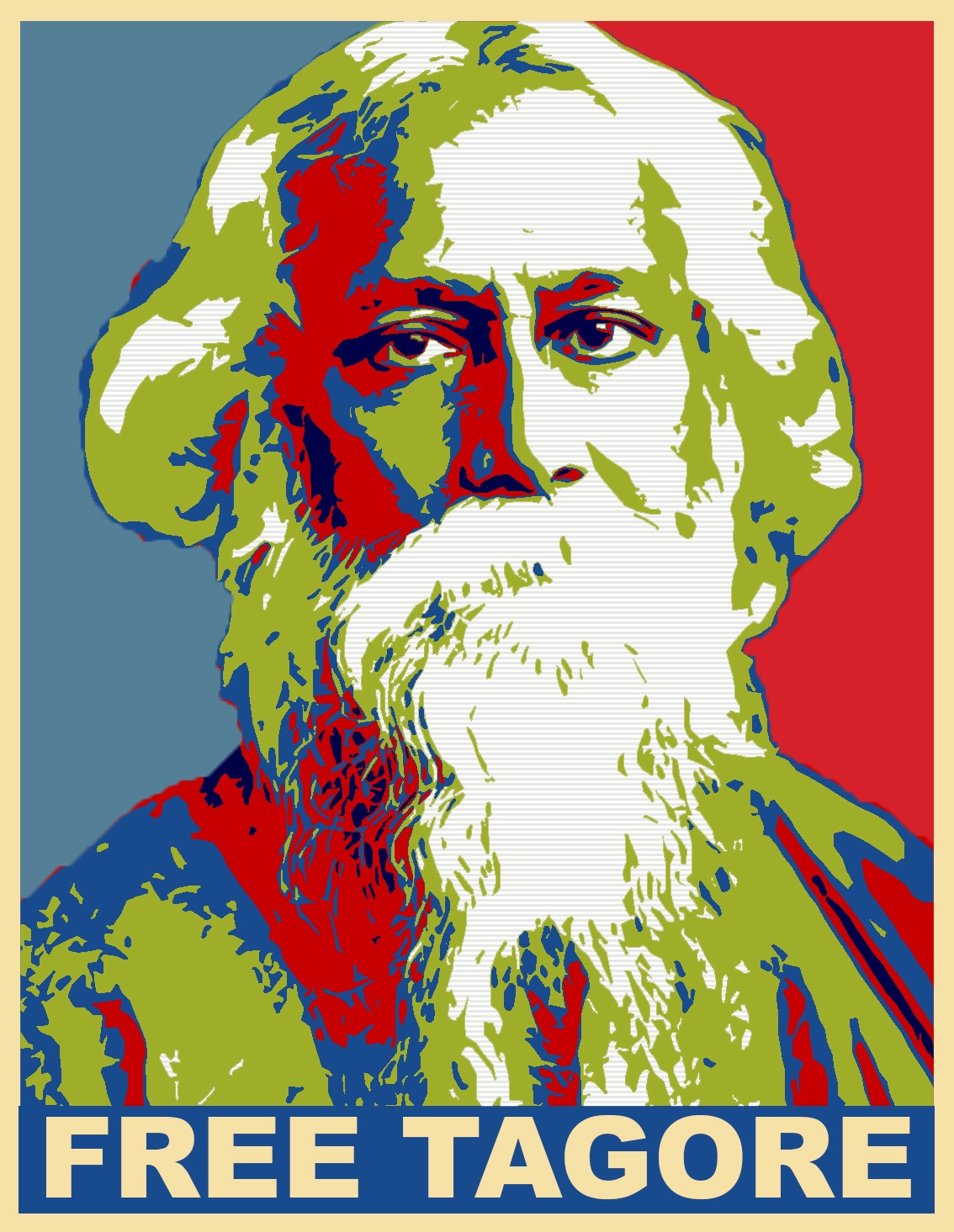#freeTagore
Written by: Lubna Marium
Posted on: Saturday 14th of May 2016 07:21:32 AM

Arts Gaze by Lubna Marium
#freeTagore
'Pochishe Boishakh', the birth anniversary of Bengal's very own Poet Laureate, brings with it a blitz of performances based on Tagore's literature and, also brings on, an onslaught of discussions and debates about the relationship between the texts, it's performance and it's ownership. With Tagore this discussion is inundated and almost overcome with questions of 'purity' and 'preservation'.
Let me, right in the beginning, clearly state that I am all for exploring newer ways of understanding Tagore's literary works, with the goal of peeling away layers of suggestiveness, inference and even, at times, concealment. In Indian Poetics this unique ability of genuine literature is known as 'vyanjana' - the capacity to hide the core essence of the text beneath its more mundane literal sense.
Tagore himself has stressed, many a time, that the language of art needs to be more indicative than descriptive, such as in the following passage from ‘Kabbo: Sposhto ebong Awsposhto’: In poetry it is often seen language does not explicitly express the spirit of the emotions, rather through suggestion it directs us towards it. Here unexpressed symbolism supersedes language. Though accuracy is generally necessary, at times like these we have no need for lucidity.
It is, therefore, quite obvious that a text may have several interpretations, given the experiential sphere of each reader.
And, then comes the question of 'ownership'. Indian poetics recognizes the fact that literature is a triumvirate experience involving the creator, the actor and the 'sahridaya' or connoisseur of art. Abhinavagupta, the 10th century philosopher, mystic and aesthetician from Kashmir, goes so far as to state that all of art belongs equally to the creator and the relisher. Once in the public domain, a work of art - literature, painting, music - shares ownership with the connoisseur.
On May 8, 2016 Bangladesh Shilpakala Academy released two short feature films based on Tagore's writings, made under its subsidy. The first was Tokon Thakur's 'Rajputtur' based on selections of adolescent fictions from Tagore's anthology 'She'; while the second was Sumona Siddique's 'Madho' based on a poem, of the same name, in Tagore's anthology 'Chorar Chobi'.
The Shilpakala Academy needs to be congratulated for this endeavor and for allowing the directors the freedom to interpret Tagore, as they chose. On that count, itself, both were enjoyable, Tokon's being more abstract and imaginative, while Sumona took a more literal road through marvelous cinematography depicting the boy, Madho, and his adored dog Botu. I, though, was left wanting for a more poetic interpretation of the last verse, translated roughly as:
'And so he journeyed homeland, where home itself was no more,
Mother had died, Father too, shackles all undone,
They embarked on the journey with hope in their hearts.
Could displaced roots find, again, the soil they had left behind?' (Madho, Tagore)
The poeticism of the 'uprooted' could, maybe, have been addressed more.
I suppose maturity will bring a deeper understanding of the 'vyanjana' behind both the short writings. Nonetheless, these projects need to continue.
I would like to conclude by saying that, as Bengalis we cannot deny that we have not done enough to take Tagore’s literature to the world. Whereas stalwarts like Shakespeare and Ibsen have been adopted, adapted and performed worldwide, Tagore continues to be, more or less, imprisoned within the confines of the Bengali speaking community. None will disagree that the universal message of his writings needs to be disseminated far and wide. But, is that possible without letting him loose from our emotional apron strings?
I for one would like to see Tagore set free from all codes of puritanism and convention, for all to imagine him, to perform him, to relish him as they want.
.
Leave a Comment:
Read what others says about us
- documenting for posterity
- performing transformation
- cherishing tradition
- the body speaks anew
- in conversation with two shadhona dancers
- gidree bawlee: empowerment through art
- in conversation with shadhona dancer sinthia yasmin nupur
- don’t hold your breath!
- #freetagore
- history of rhythm, in pixels
- of monsoons, myths and manasa
- culture: the present site for struggle
- the art & politics of documentation
- and, theatre strikes back!
- lest we forget: atiśa
- dancing away boundaries
- dance-why?
- haha
- hhh
- heked
Advertisement #1

Advertisement #2

Advertisement #3
